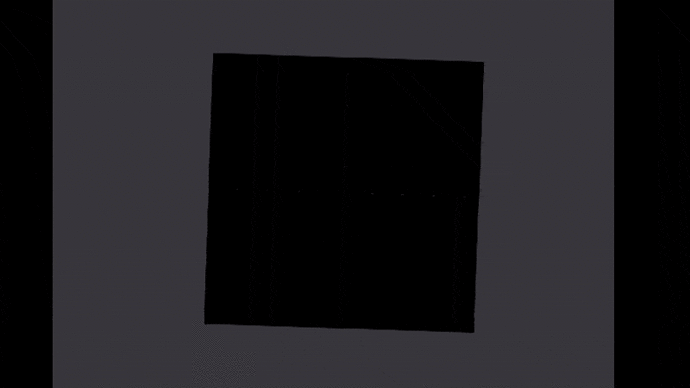I’m having a problem where I am storing the position/rotation/scale in a matrix for easier manipulation of these values with parenting. It all seems to be going well, except for when I rotate the matrix, which is when the object seems to jitter around and shake. Here is the relevant code:
// This runs for every object that doesn't have a parent, as the parent will execute
// Draw() for its children once it is done
internal void Draw()
{
float RadRot = MathHelper.ToRadians(Rotation);
// Sets world matrix for things that draw
if (Parent != null) {
WorldMatrix = Matrix.CreateScale(RelativeSize.X * Parent.Size.X, RelativeSize.Y * Parent.Size.Y, 1) * -Matrix.CreateTranslation(Pivot.X, Pivot.Y, 0) * Matrix.CreateRotationZ(RadRot);
WorldMatrix.Translation = Vector3.Zero; // Rotating seems to create a strange positioning issue, this fixes it
WorldMatrix *= Matrix.CreateTranslation(RelativePosition.X * (Size / StartSize).X, RelativePosition.Y * (Size / StartSize).Y, 0) * Matrix.CreateRotationZ(Parent.DecomposedRotation) * Matrix.CreateTranslation(Parent.DecomposedPosition.X, Parent.DecomposedPosition.Y, 0);
} else
{
WorldMatrix = Matrix.CreateScale(RelativeSize.X, RelativeSize.Y, 1) * -Matrix.CreateTranslation(Pivot.X, Pivot.Y, 0) * Matrix.CreateRotationZ(RadRot);
WorldMatrix.Translation = Vector3.Zero; // Adjusting the pivot seems to create a strange positioning issue, this fixes it
WorldMatrix *= Matrix.CreateTranslation(RelativePosition.X, RelativePosition.Y, 0);
}
Vector3 TempPos = Vector3.Zero;
Quaternion TempRot = Quaternion.Identity;
Vector3 TempSize = Vector3.Zero;
WorldMatrix.Decompose(out TempSize, out TempRot, out TempPos);
DecomposedPosition = new Vector2(-TempPos.X, -TempPos.Y);
DecomposedRotation = RadRot;
DecomposedSize = new Vector2(MathF.Round(TempSize.X), MathF.Round(TempSize.Y));
SetRefs();
foreach (Component2D comp in Components)
{
comp.Draw();
}
foreach (Object2D child in Children)
{
// Now draws the children
child.Draw();
}
}
This is what comp.Draw calls:
MyGame.SpriteDrawing.Draw(Image, new Rectangle(LinkedObject.DecomposedPosition.ToPoint(), LinkedObject.DecomposedSize.ToPoint()), RenderRegion, Color, LinkedObject.DecomposedRotation, LinkedObject.Pivot, SpriteEffects.None, LinkedObject.Layer + (SubLayer / 10000));
Here is what it looks like in action:
And here’s another example
EXTRA NOTE: This jittering occurs no matter the scale of the objects

